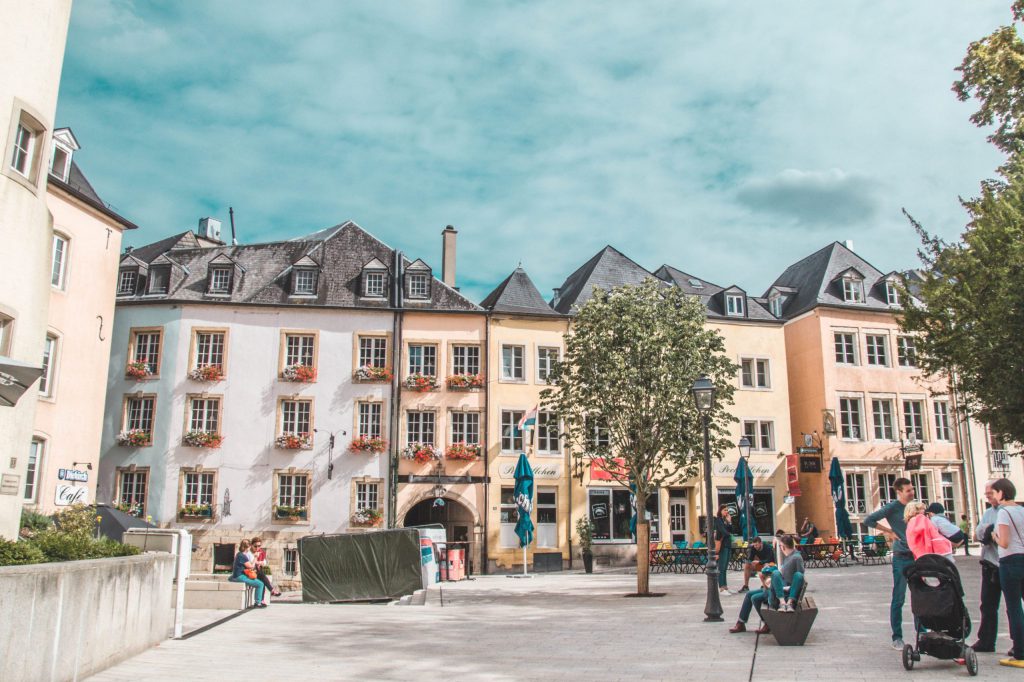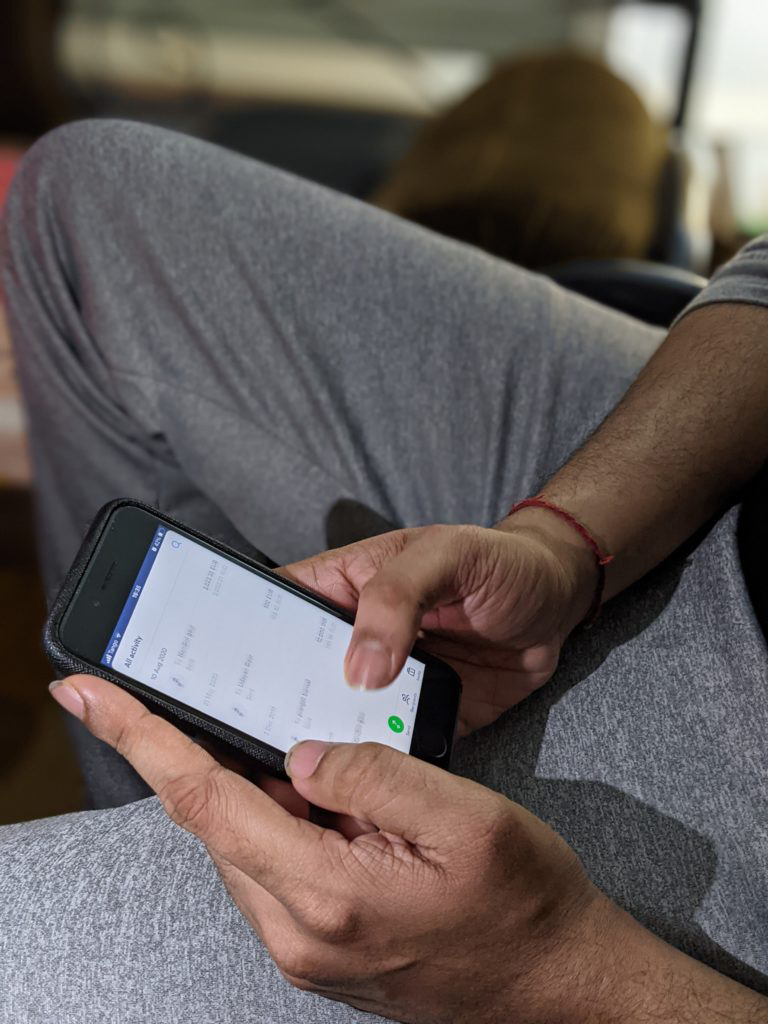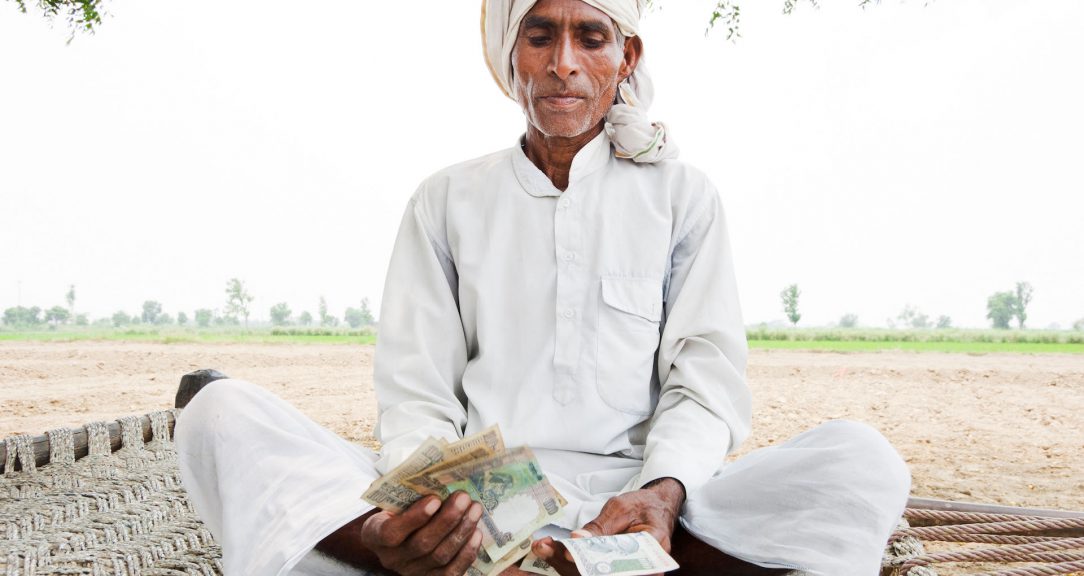Avinash Kumar moved to Luxembourg months ago, and he is still waiting for his paperwork to be processed. But he has already started working at an Indian restaurant as a delivery person — his family depends on his earnings.
Kumar, who asked for his real name not to be used, sends slightly more than half of what he earns back home to his parents, wife and son. “Unfortunately, my wife lost her job in April due to the Covid-19 lockdown. I lost my job last year. So we were really struggling to make ends meet,” he says.
I want to give my child all the luxuries that I could not have when I was growing up.
Kumar is 32 years old, soft-spoken and determined to turn the fortunes of his family around. “I can’t just sit and see my family suffer in poverty,” he says. “I want to give my child all the luxuries that I could not have when I was growing up.”
Luxembourg’s well-paying job opportunities are a big draw — about half of its 600,000 residents are foreign nationals. And the tiny country’s total outward remittances total $14 billion a year, accounting for 19% of its GDP, the highest proportion in the world.
Indians form a small but growing presence in the Grand Duchy, having grown from a population of around 500 in 2011 to almost 3,000 in 2020. Luxembourg accounts for a very small fraction of a percent of India’s remittances, about €1 million annually.
In all, India received $83 billion in remittances in 2019, more than any other country — more than the entire GDP of Luxembourg, in fact. Remittances are a key piece of India’s economy, contributing about 3% of India’s annual GDP, according to World Bank data. And even small remittances can make a big difference back home, especially in Bihar, where Kumar is from.

Searching for a future
The East Indian state of Bihar is where Siddhartha Gautama is said to have attained enlightenment and became the Buddha. Bihar is situated in the fertile plain that follows the river Ganges, and it is now India’s most densely populated state, with more than 100 million residents. But the region remains extraordinarily poor and devoid of economic progress.
Employment opportunities in Bihar are scarce and often not particularly lucrative. At the height of the Covid-19 lockdowns in April and May 2020, the unemployment rate in the state jumped to 46% — twice the national average of 23%. Prior to the lockdown, the unemployment rate in Bihar was 10%, still higher than India’s average of 7%.
So, emigration is a fact of life in Bihar. Much of the emigration is seasonal and domestic. In fact, domestic remittances account for 4% of the state’s GDP. Bihar’s average per capita income is just INR 31,200, or $425. It is one-third of India’s national average per capita income and less than one-tenth of India’s richest state, Goa.
In order to access better employment opportunities, Kumar had been trying for years to relocate by using migration agents. “In July, I was lucky that a distant uncle who owns a restaurant in Luxembourg asked if I could come join him as migrant workers who worked in his restaurant previously had all left due to coronavirus and did not return,” he says. Some of those workers had returned to India; others went to Portugal.
In July, Kumar’s uncle applied on his behalf for a work permit as a chef when Kumar was still in India. As soon as the initial authorization arrived, Kumar moved to Luxembourg in early September 2020. But he still awaits the final work permit, delayed amid the pandemic, that will allow him to open a bank account and work formally.
I had to start working immediately, or my family back home would have to beg for survival.
“But I had to start working immediately, or my family back home would have to beg for survival,” Kumar says. He is getting paid €1,500 a month — lower than the prescribed social minimum wage of €2,141 a month in Luxembourg — but all in cash. “I send around €800 back to my family and manage as best as I can with the rest here.”
With just €700 a month to work with, not enough to pay for rent in Luxembourg, Kumar stays with his uncle. “My uncle has been very kind to let me stay in his house,” he says. “But I will have to move out eventually. Hopefully, when my paperwork is complete, I will be earning more money and can afford a small room for myself.”

Land of opportunities
Kamal Singh, who is also from Bihar, first left India in 2011 to begin a job as a software engineer in Singapore. He has been sending a part of his income back home ever since; for the last 18 months from Luxembourg, where the 36-year-old now works as a technical program manager at a major tech company.
Most of the money he has sent went toward repaying loans he took from friends and family in India to pay for his MBA. He made the last repayments four months ago, but he continues to send about 10% of his income to his parents.
Singh says they don’t “need” the money, but it’s an additional support for his elderly parents living in Patna, the capital of Bihar. Patna is an ancient city dating back to the 5th century BCE and was the capital city of the Indian subcontinent’s first great emperor, Ashoka.
In its current incarnation, it is a bustling city of 2.5 million people that is very different to the laid-back Luxembourg City, with its population of 125,000. But Singh came prepared for the change. “I knew what to expect,” he says. “It helped that I previously lived in regions that were secluded and quiet. So I was prepared for it.”
The cost of living is quite high in Luxembourg. An average meal at an inexpensive restaurant will set you back about €16, and the average rent for a two-bedroom apartment in Luxembourg City costs about €1,800. According to numbeo, it’s more expensive than London but more affordable than Paris. Despite the relatively high cost of living, expats are able to save and send money home thanks to Luxembourg’s equally high wages.
Greetings and remunerations
Swapnil Mahalle, who moved to Luxembourg a year ago to work with a major tech company in logistics, has been sending remittances back home to New Delhi to repay his home mortgage and a car loan. “I had just taken a home loan and car but got this excellent opportunity. The job also meant less travel than my previous job and that was a big factor too,” he says.
When Mahalle moved abroad, he still had to repay his loans in India. Initially he used bank-to-bank transfers, which he found to be quite expensive and slow. Then he discovered an online payments platform that also provides money transfer services in many countries including India. The first time that he used it, he says, it took about 12 hours for the transfer to go through, but now Mahalle finds the transfer shows up in his Indian bank account within 15 minutes.
Expats are less likely to use bank transfers due to the high fees, the less favorable exchange rates and the long processing times. Instead, most people now prefer online money transfer operators.
Ashwini Dutt Kandpal, who is 32 and moved to Luxembourg about four years ago, also uses an online payments service to send money to his bank account back home in Chandigarh in the North Indian state of Punjab.

“The fee is low, and the transfer happens quite quickly. So, it serves my purpose,” says Kandpal, who works at an Indian restaurant in Luxembourg City.
Kandpal transfers around 30% of his monthly income to his bank account in India for the benefit of his parents and for monthly payments on a life insurance policy in his name. He also uses the money to pay monthly mobile phone and electricity bills for his parents.
“I always keep some money in my account so that I can transfer quickly as and when the need arises,” Kandpal says.
Kandpal is happy that the technology exists for him to easily transfer funds to his parents in India. He hopes he is able to visit in person sometime soon, too. “I hope the Covid-19 restrictions end soon and I am able to go meet my parents. I haven’t been to India in almost two years.” But until then, he will keep sending his money.
Read more
Sign up to keep up to date with ReThink Q.







